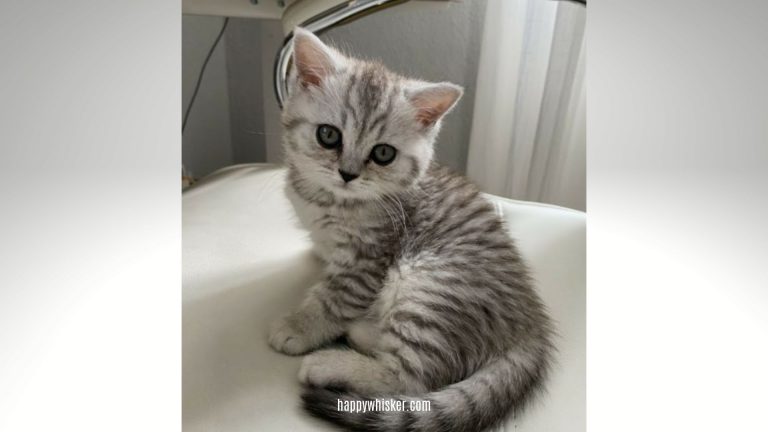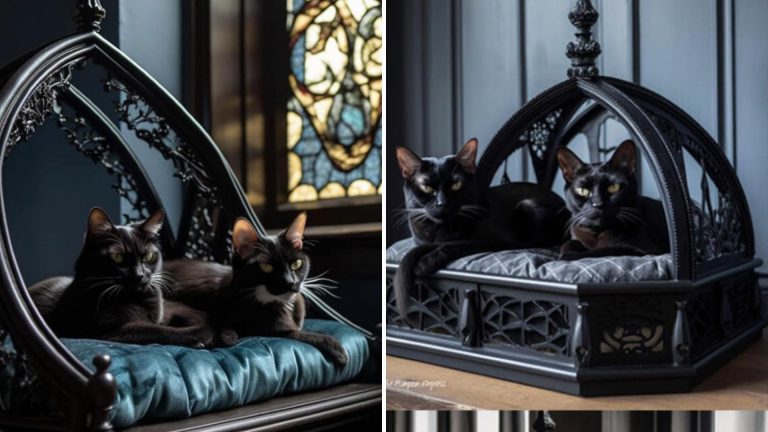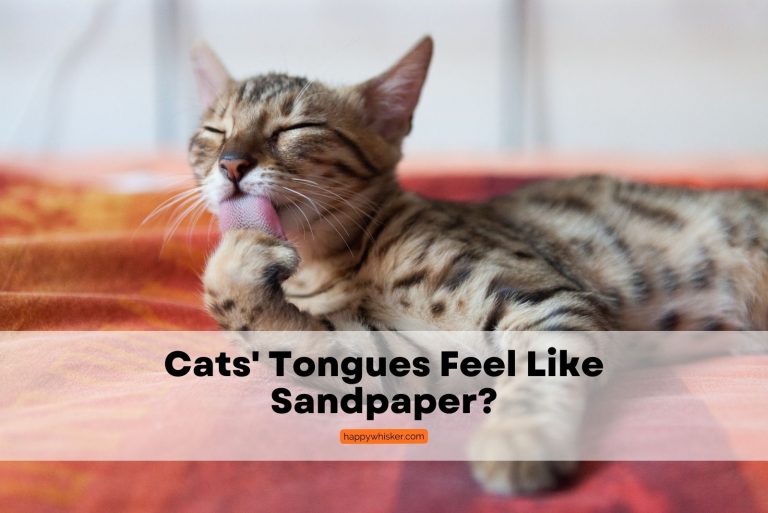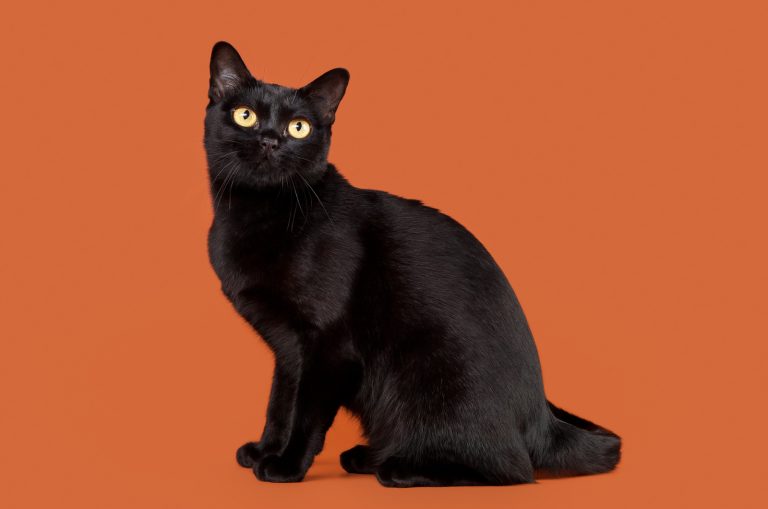Why Is Your Cat Twitching In Sleep? 5 Possible Reasons
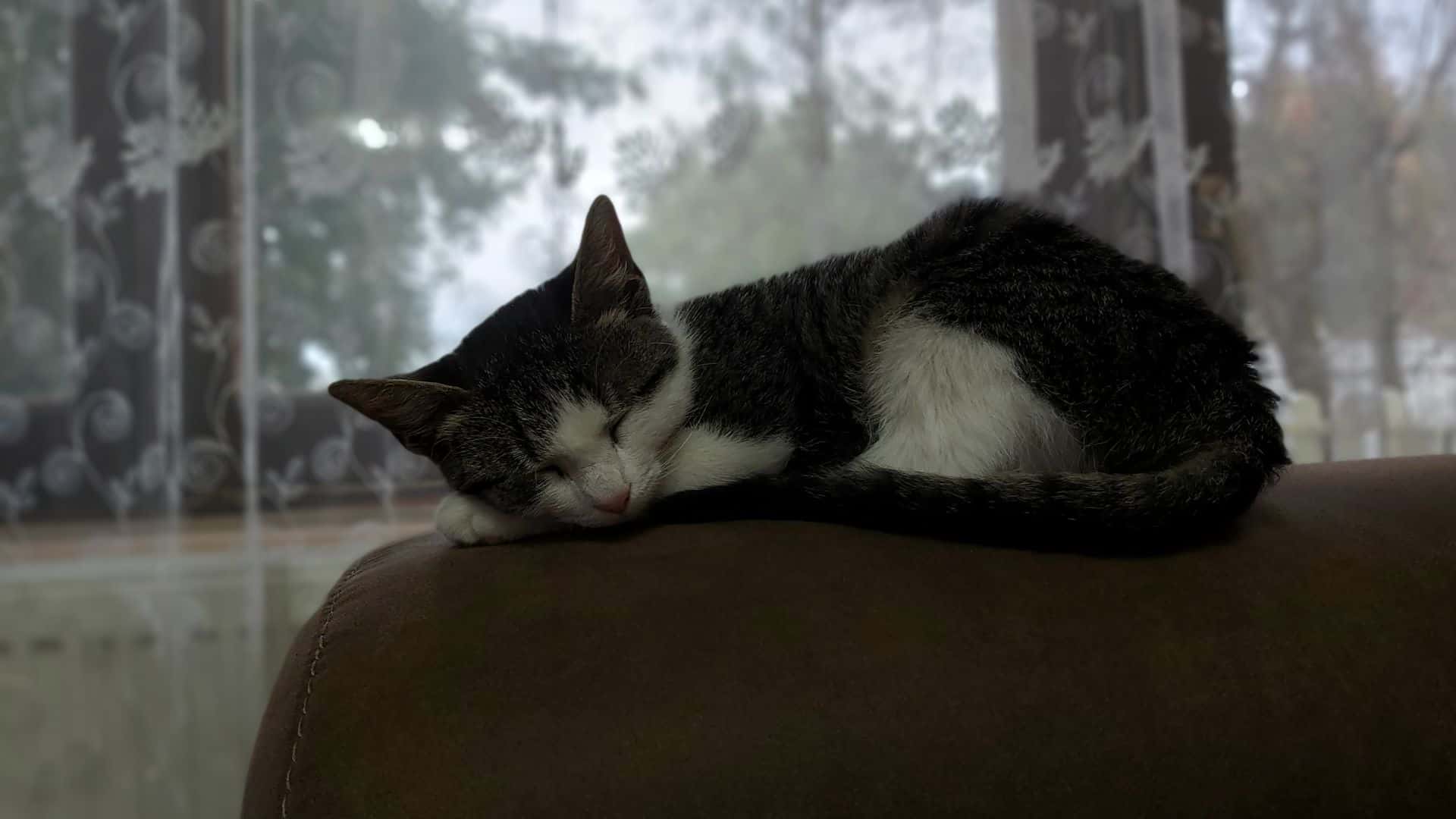
Do you ever think about why cats twitch in their sleep? We all know our cat’s normal behavior, and we immediately notice when something unusual is happening.
Is your feline friend twitching in their sleep because of dreams they are having, or is it an indication of something more serious?
Usually, cat twitching in sleep is harmless and is mostly due to deep sleep. However, sleep twitching can sometimes be caused by seizures. This is rare, but it can happen.
So, let’s see how you can discern between harmless twitches and sleeping states and conditions that require veterinary treatment.
Fun fact: Throughout this article, you’ll see photos of my cat named Mikey, who absolutely loves sleeping!
Cat Twitching In Sleep, Aka FHS
Before you continue reading, check out this cutie I stumbled upon on YouTube, I hope you’ll have a laugh!
FHS, or Feline Hyperesthesia Syndrome, is considered to be a form of a seizure.
There is no clear distinction as to what this state is, but most veterinary experts seem to put it into the category of seizures.
It is expressed through some actions your cat does, and is considered similar to human OCD (obsessive-compulsive disorder).
The FHS can be “triggered” by doorbells, certain sounds, and certain changes, like cat food changes, etc. Why am I mentioning this syndrome? Well, because it is likely to be the cause of your kitty twitching in its sleep.
Symptoms Of FHS
Feline Hyperesthesia Syndrome usually manifests in your cat twitching. It will be different for every cat, but it will mostly include twitching and other signs of erratic behaviour. These might include:
• your cat biting the area around its tail, legs, and back
• excessive licking at its tail
• “zoomies” (when the cat goes running around pretty fast)
• your cat being irritated
Other symptoms you will be able to notice in your cat in the case of FHS:
• rapid breathing
• excessive drooling
• dilated pupils
• strange vocalizations
There is no established medication for this syndrome, and specific treatment for your cat will vary depending on its symptoms and condition. There may also be an underlying health issue, which will aid the diagnosis and, later on, the treatment.
Before I move on to other reasons for a cat twitching in its sleep, I must briefly explain its sleep cycle.
See also: Why Do Cats Sleep Face Down? 5 Possible Reasons
Understand Your Feline’s Stages Of Sleep
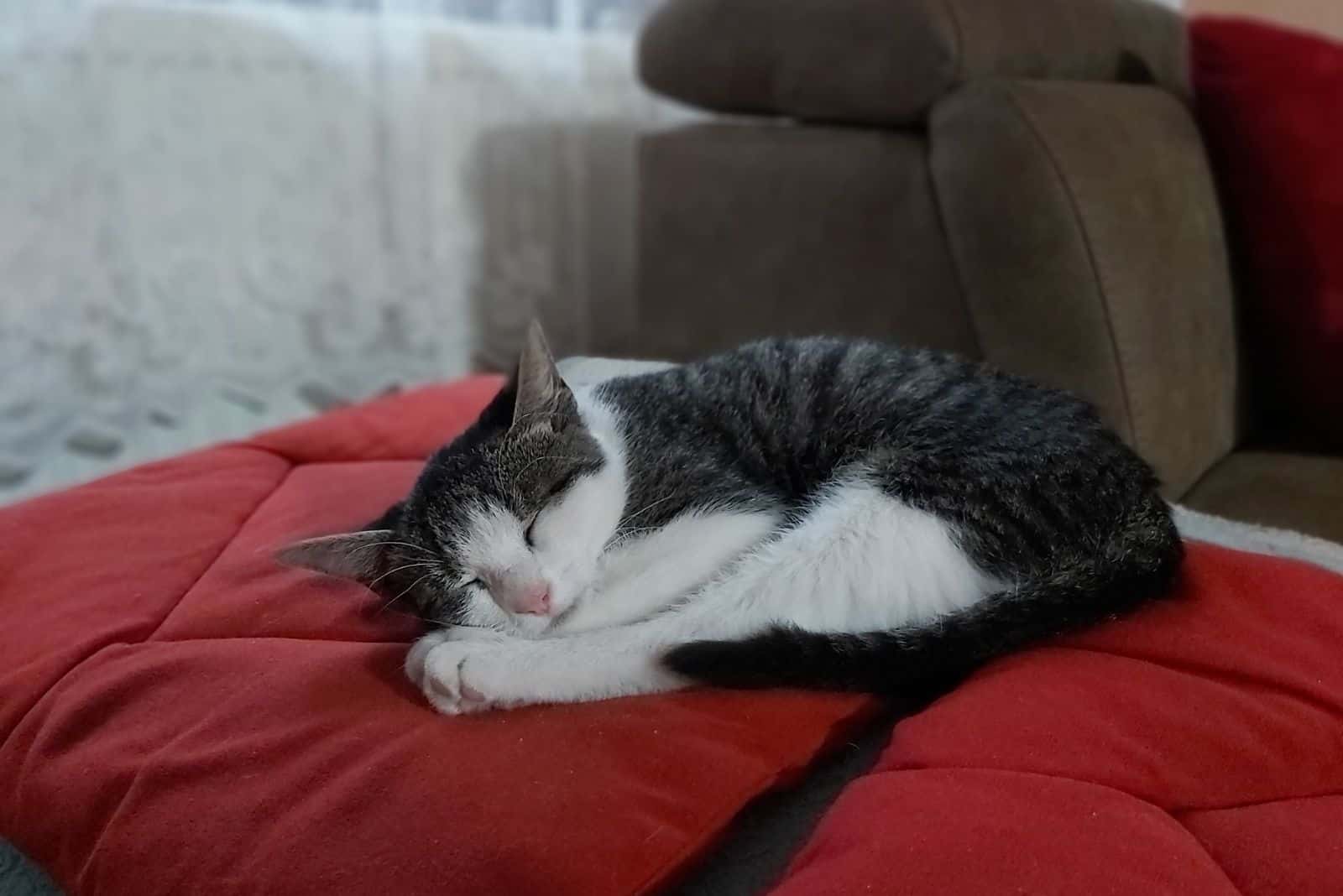
Most adult cats have three stages of sleep, the catnap, the light sleep stage, and the REM stage. They, as kittens, also have a fourth stage known as active sleep. Your cat is sleeping at this stage, and its nervous system is still active.
Kittens need this stage, so their nervous systems develop correctly. Once they become adult cats, this stage no longer exists; at this time, as they sleep, their nervous system is also resting.
1. Catnap
Catnaps are commonly used to describe the first stage of a cat’s sleep. They are frequently very short, and the cat remains awake and responsive to its surroundings.
Your cat’s ears turning or twitching in response to noise and sounds is the most visible sign that your cat is still in the first stage of sleep.
2. Light Sleep
Light sleep is, of course, your cat’s second phase of sleep. The duration and level of awareness of light sleep can vary.
The cat isn’t as alert as it is during a nap, but it’s also not deep sleeping or dreaming. Cats must pass through stage two before moving on to stage three.
3. Deep Sleep
The deep sleep stage, known as REM sleep (rapid eye movement), is the third and final sleep stage. Similar to us, cats dream in the REM stage of sleep, so it’s perfectly normal if your cat is twitching during deep sleep.
You might also be interested in: 10 Cat Sleeping Positions When Sick
Other Reasons For Cat Twitching In Sleep
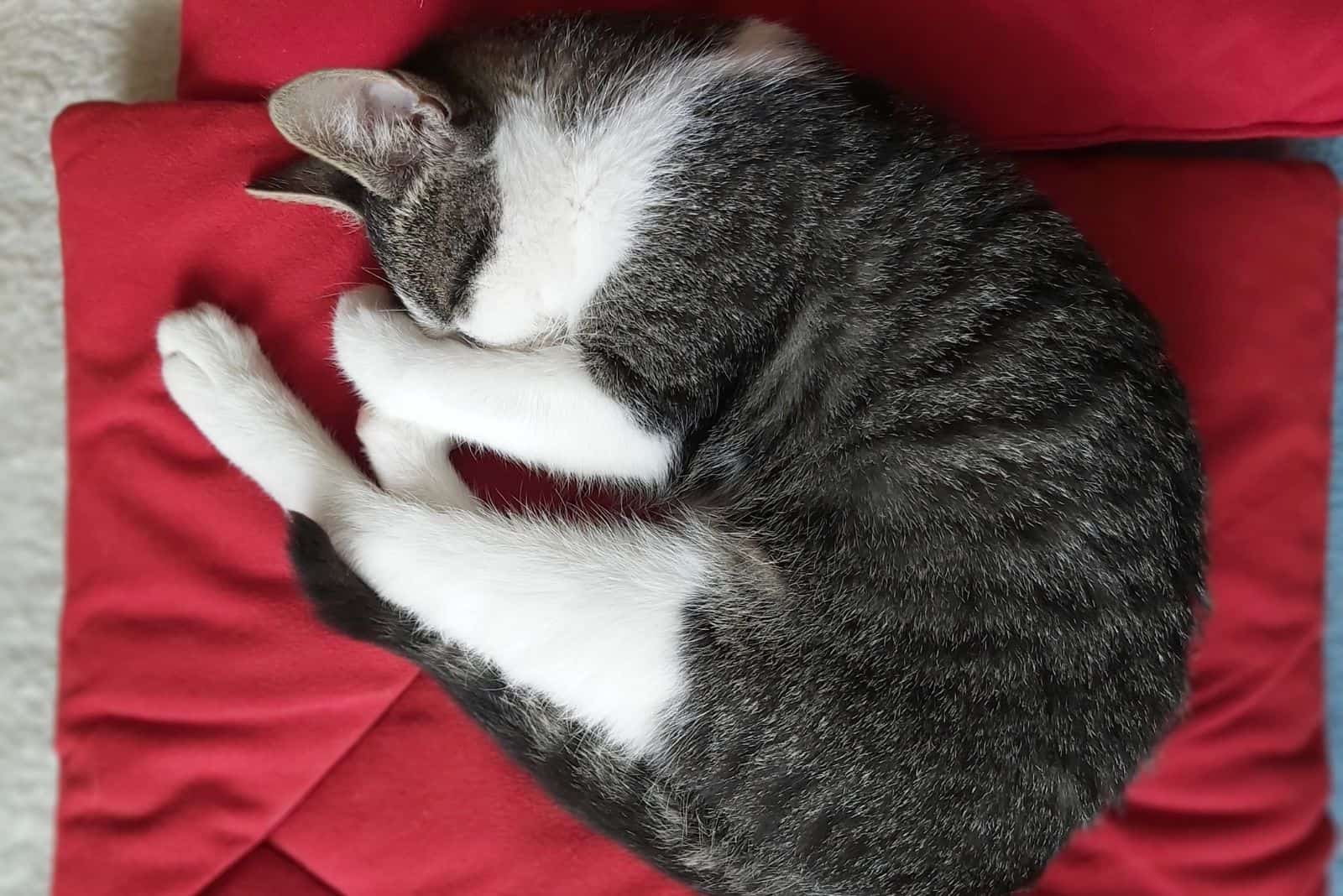
Several different causes can underlie your cat’s twitching in sleep. Fleas, ear mites, and skin irritations can all be causes of your cat’s jerky movements and sleep twitching.
If your cat has allergies or suffers from skin infections or something similar, it could also be accompanied by sleep twitching.
Other than the most common cause for cat twitches, FHS, which I mentioned first, there are four other common reasons for your cat twitching in sleep.
1. The Cat’s Nervous System Is Developing
If your kitten twitches a lot while sleeping, it is probably still developing its nervous system. As I’ve said, all kittens must develop their nervous systems completely during stage four.
Kittens twitch a lot during this period and may even cry or wiggle while sleeping. If the kitten is twitching and noisy, it is most likely in sleep stage four. Once the kitten’s nervous system has fully developed, it should grow out of this.
There is no need to be concerned if you believe your kitten is twitching as a result of a developing nervous system. In fact, it is essential for your cat’s health and well-being. Allow your kitten to continue dreaming and twitching and enjoy.
2. The Cat Is Having A Muscle Spasm
Whatever stage of sleep your cat is in, it could be experiencing muscle spasms. Spasms occur when the muscles of the body contract and relax repeatedly.
Medical conditions occasionally cause muscle spasms, but for the most part, they are a normal part of the sleeping cycle.
3. Your Cat Is Dreaming
Even though adult cats have progressed past stage four of sleep, many still twitch as a result of stage three, or deep sleep.
When your cat dreams, it may twitch in response to what it sees in the dream. Dream twitching will most likely be much less noticeable than stage four twitching.
Kittens are the only ones that can experience twitching in the fourth sleep stage, but they can also experience it in REM sleep. You may be able to tell which stage your kitten is in by the severity of its twitches.
If the twitches are minor, the kitten is most likely to be dreaming. Your kitten is most likely in active sleep if the twitching is excessive or accompanied by vocalizations.
As I said, you shouldn’t be concerned about your cat’s health if it is twitching as a result of dreams. This is completely normal; allow your cat to continue dreaming and naturally wake up.
4. Twitching Due To Seizures
Although the reasons listed above are completely safe and normal for your cat to twitch while sleeping, the twitching could be caused by something more severe, such as seizures.
Although seizure–induced twitches are much less common, they are still possible. Normal twitches can be hard to distinguish from seizures to the untrained eye.
Twitches differ from seizures in that seizures attack the entire body rather than just parts of it. Twitches, for example, typically affect only the tail, leg, or a single part of the body, whereas seizures cause the entire body to tremble.
Seizures are frequently accompanied by a range of other symptoms. Appetite changes, grooming, and activity can all be symptoms of seizures in your cat.
Check out: Why Do Cats Chirp? 3 Reasons You’ll Find Fascinating
Should I Wake My Cat Up If It Is Twitching?
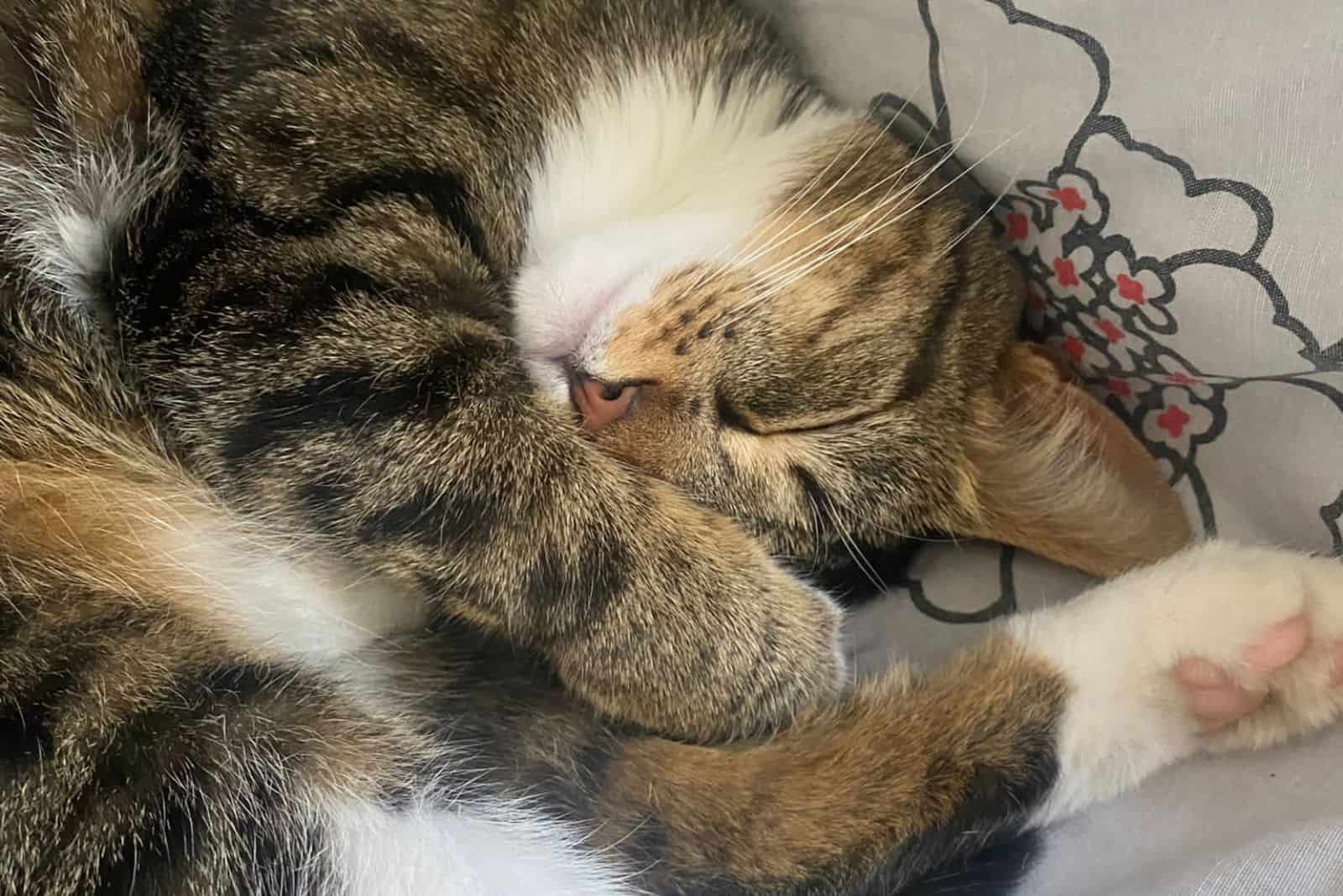
It isn’t necessary, and it could be a bad idea to wake your cat up unless you feel like something else is going on while your cat’s twitching in sleep.
If your cat is just sleeping, waking them up suddenly and unexpectedly will give your cat a shocking experience.
However, if you’re concerned about your furry friend and must wake it up, try to do it slowly and gently. Don’t use a worried voice; be kind and gentle.
So Why Do Cats Do This?
Basically, your cat is most likely dreaming in its REM stage of sleep, and that’s why it’s twitching.
Your cat’s whole body is resting and relaxed, so it’s quite possible your cat will twitch during deep sleep. Only the brain of a cat is active, which is actually why it is able to dream.
Final Words
All in all, if you ever notice your cat twitching in sleep, there’s usually nothing concerning about it. It is normal and mostly caused by dreams.
However, if you’ve tried to wake your sleeping cat up and failed, it’s possible that there’s an ongoing seizure as well. This necessitates veterinary care.
With seizures, you’ll notice ear twitching and jerkier movements than the usual cat behavior twitches. If you notice anything unusual, or if you can’t wake your cat up, seek the help of your vet.
There is usually nothing to worry about if your cat happens to twitch in its sleep. It isn’t unusual unless your cat is unable to wake up. If your cat seems otherwise fine, just relax and enjoy those cute little twitches.

